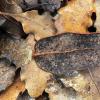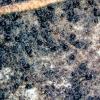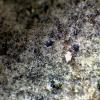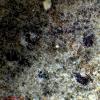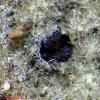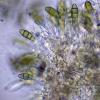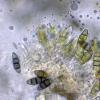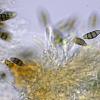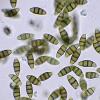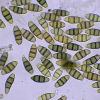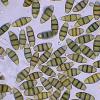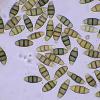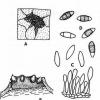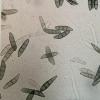
29-11-2024 21:47
Yanick BOULANGERBonjourJ'avais un deuxième échantillon moins mat

27-02-2026 17:51
 Michel Hairaud
Michel Hairaud
Bonjour, Quelqu'un peut il me donner un conseil p

27-02-2026 16:17
 Mathias Hass
Mathias Hass
Hi, Found this on Betula, rather fresh fallen twi

27-02-2026 12:56
Åge OterhalsFound on fallen cones of Pinus sylvestris in midle

27-02-2026 11:21
 Yannick Mourgues
Yannick Mourgues
Hi to all. Here is a specie that can may be relat

26-02-2026 15:00
Me mandan el material seco de Galicia, recolectada

24-02-2026 11:01
Gernot FriebesHi,found on a branch of Tilia, with conidia measur

23-02-2026 11:22
Thomas Læssøehttps://svampe.databasen.org/observations/10584971
Anamorph on a leaf.
Josep Torres,
16-04-2025 08:53
An anamorph photographed under holm oaks this past Sunday. Apart from the holm oaks, there were only Buxus and Juniperus in the area. So, despite the leaf being distinct from the surrounding ones, I must assume it was an oak leaf. Although I can't confirm this either, the saprophytic ascomycete only affected this leaf, and no matter how hard I looked, I couldn't find any other affected leaves.
Blackish ascomata, like deformed grains between 0.25 and 0.30 mm, sprouting scattered over the upper surface of the leaf.
Conidiogenous hyphae arranged in parallel, between 10 and 30 microns long, produced fusiform, glusky-walled conidia with three distinct septa, slightly constricted, the two central cells more pigmented, and the ends slightly mucronate and hyaline, no apparent reaction to Melzer's Reagent.
These conidia measured in water:
(20.1) 20.6 - 24.5 (24.8) × (7.1) 7.6 - 8.5 (8.9) µm
Q = (2.4) 2.6 - 3 (3.3) ; N = 40
Me = 22.7 × 8.1 µm ; Qe = 2.8
On this occasion, I admit I'm completely lost.
Any feedback from you would be greatly appreciated.
Thank you in advance.
Best regards.
Luc Bailly,
16-04-2025 12:22
Josep Torres,
16-04-2025 14:29
Re : Anamorph on a leaf.
Thanks, Luc.
Hendersonula seems like a good option. I was completely unaware of the existence of the genus, given the limited information available online. Furthermore, from what I've seen, it's subject to constant change. In the absence of new opinions, I'm leaving this work in my archives for now as Hendersonula cf.
Best regards.
Hendersonula seems like a good option. I was completely unaware of the existence of the genus, given the limited information available online. Furthermore, from what I've seen, it's subject to constant change. In the absence of new opinions, I'm leaving this work in my archives for now as Hendersonula cf.
Best regards.
Luc Bailly,
16-04-2025 16:44
Re : Anamorph on a leaf.
Hendersonula mostly grow on bark, so maybe something close.
Josep Torres,
17-04-2025 08:27
Re : Anamorph on a leaf.
Thanks, Luc.
Then it's best to leave the topic as the closest thing for now, that is, Hendernosula aff.
Best regards.
Then it's best to leave the topic as the closest thing for now, that is, Hendernosula aff.
Best regards.
Josep Torres,
19-04-2025 07:53
Re : Anamorph on a leaf.
Thanks, John, for your opinion.
Considering the substrate, Fusariella seems like a good option, but in this case, what no longer fits me is the conidiogenesis, nor the conidia size. In most species, they are shorter and narrower. Based on the conidia size, it might fit Fusariella kansensis, but not its morphology, since it is described as having curved conidia.
Best regards.
Considering the substrate, Fusariella seems like a good option, but in this case, what no longer fits me is the conidiogenesis, nor the conidia size. In most species, they are shorter and narrower. Based on the conidia size, it might fit Fusariella kansensis, but not its morphology, since it is described as having curved conidia.
Best regards.
